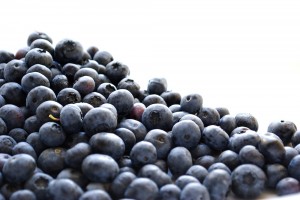How blueberries could help your smile
Scientists from the Université Laval in Quebec have been studying compounds in wild blueberries that act like natural antibiotics. They recently found that compounds in blueberries called polyphenols may stop oral bacteria from growing.
Daniel Grenier, PhD, led this new study of the wild lowbush blueberry (Vaccinium angustifolium Ait). Dr. Grenier is a microbiologist and professor of dentistry at Université Laval in Canada.
Gum disease, or gingivitis, occurs when bacteria form a film called plaque on the teeth. The gums become inflamed. If untreated, the infection can spread below the gum line. In severe cases, the infection can destroy the teeth.
Current treatment involves scraping off the tartar. In some cases, patients need antibiotics.
Past research had found that blueberry extracts could work against foodborne pathogens that can cause disease. This is the first study to look specifically at blueberry extracts in gum disease.
Dr. Grenier and team tested blueberry extracts against a bacterium called Fusobacterium nucleatum. F. nucleatum is one of the primary bacteria species in periodontitis (inflammation of the gums).
The extract inhibited the growth of the bacteria, Dr. Grenier and team found. It also helped reduce inflammation.
Dr. Grenier and colleagues are now developing an oral device that could be used after deep cleaning. The device would slowly release the blueberry extracts to treat periodontitis.
This study was published in September in the Journal of Agricultural and Food Chemistry.
The Laboratoire de Contrôle Microbiologique de l’Université Laval funded this research. Dr. Grenier and team disclosed no conflicts of interest.
Photo: www.shutterstock.com
09/12/2015
Source: www.dailyrxnews.com






